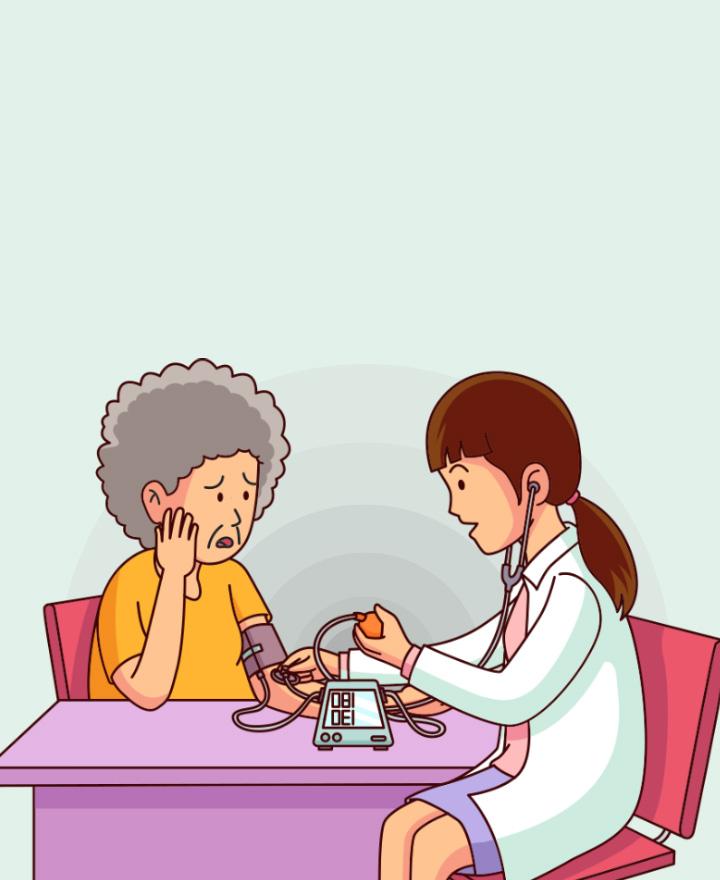

Impact of heat wave on health
Heat waves are prolonged periods of excessively hot weather, characterized by high temperatures that persist for days or even weeks. Extreme heat waves can have wide-ranging and severe effects in physical health, mental well-being, and community infrastructure. Read on to know more.
Effects of Heat Waves on Humans
Extreme heat waves can have serious impacts on health in several ways. These events often occur during the summer months and can vary in intensity & duration depending on various factors such as geographic location, climate patterns, & weather conditions. This includes:
1. Dehydration, especially if individuals do not replenish fluids adequately. It can cause symptoms such as thirst, dry mouth, fatigue, and dizziness.
2. Heat-related illnesses such as heat exhaustion, heat cramps, heat rash, and most severely heat stroke. These conditions result from the body’s inability to regulate its temperature effectively.
3. Exacerbation of existing health conditions, including cardiovascular diseases, respiratory illnesses, and mental health disorders. For instance, it can worsen conditions like hypertension and increase risk of heart attacks and strokes.
4. Impact on Mental health, leading to irritability, mood swings, and increased stress levels.
5. Disruption of daily life & activities, including work, school, and recreational activities.
6. Worsen respiratory conditions, such as asthma and COPD. It can also increase your risk of respiratory infections.
Prevention Tips for Heat Waves
Here are some tips to stay safe during heat waves:
1. Stay hydrated throughout the day.
2. Avoid alcohol and caffeine as they can contribute to dehydration.
3. Try to avoid or limit outdoor activities, especially during the hottest parts of the day i.e. from late morning to early evening. If you must be outside then make sure to take frequent breaks in the shade or air-conditioned spaces.
4. Stay cool and spend time in air-conditioned spaces, if possible.
5. Wear light-weight, loose, and comfortable clothing in light colours to reflect sunlight.
6. Apply sunscreen of SPF 30 and above and protect yourself from the sun by wearing a hat and sunglasses.
7. Take cool water showers to lower your body temperature.
8. Pay attention to weather forecasts and heat advisories as staying informed can help you take necessary precautions during heat waves.
9. Keep an eye on elderly relatives, family, friends, and neighbours as those vulnerable might need assistance on hot days.
Conclusion
Overall, heat waves pose significant risks to human health and well-being thereby highlighting the importance of taking preventive measures and staying informed during periods of extreme heat. By taking above mentioned preventive measures, you can reduce the risk of heat-related illnesses and stay safe during these times.
One of the important components of our overall wellness is also being financially secured. Healthcare emergencies can happen any time, but a good health insurance policy can protect you from such uncertain situations. To know more about Wellness and other health related tips, visit the wellness corner.
Source: who.int, cdc.gov
Disclaimer: This blog provides general information and discussions about health and related subjects. The information and other content provided in this blog, website or in any linked materials are not intended and should not be considered, or used as a substitute for, medical advice, diagnosis or treatment. Kindly contact your Doctor before starting a new medicine or health regime.
Related Articles
10 reasons you should drink Sugarcane Juice this Summer
Benefits of Eating Curd in Summer: Beat the Heat
7 Foods To Eat During Summer Pregnancy
Heatwaves and Their Adverse Effects on the Body
Simple Tips to Detox Your Body in Summer
Published on May 15, 2024














 Health Insurance
Health Insurance  Travel Insurance
Travel Insurance  Car Insurance
Car Insurance  Cyber Insurance
Cyber Insurance  Critical Illness Insurance
Critical Illness Insurance
 Pet Insurance
Pet Insurance
 Bike/Two Wheeler Insurance
Bike/Two Wheeler Insurance  Home Insurance
Home Insurance  Third Party Vehicle Ins.
Third Party Vehicle Ins.  Tractor Insurance
Tractor Insurance  Goods Carrying Vehicle Ins.
Goods Carrying Vehicle Ins.  Passenger Carrying Vehicle Ins.
Passenger Carrying Vehicle Ins.  Compulsory Personal Accident Insurance
Compulsory Personal Accident Insurance  Travel Insurance
Travel Insurance  Rural
Rural